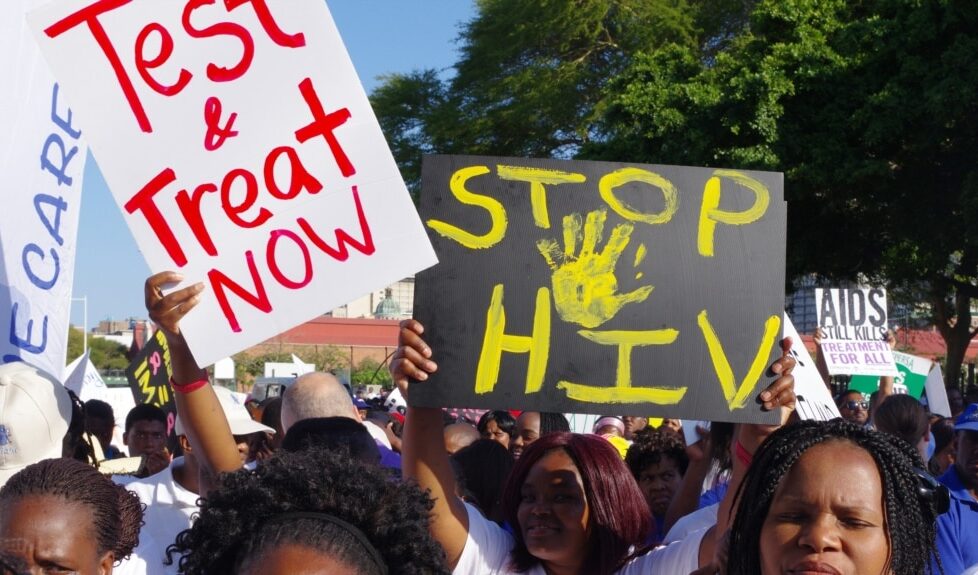South African AIDS Vaccine Initiative (SAAVI) and USAID Funding Cuts
The termination of USAID funding has halted BRILLIANT Consortium's vaccine trials.

The termination of USAID funding has halted BRILLIANT Consortium's vaccine trials.

In recent months, the landscape of HIV research in Africa has been profoundly impacted by significant funding cuts from the United States. These reductions have halted promising vaccine trials and placed the future of HIV prevention and treatment efforts in jeopardy. In this article, I delve into the ramifications of these cuts, highlighting the halted BRILLIANT Consortium’s vaccine trials, the cessation of the USAID-funded HIV vaccine trial, and the promising yet uncertain future of HIV cure research in South Africa.
The BRILLIANT Consortium: A Halted Endeavor
The BRILLIANT Consortium (BRinging Innovation to cLinical and Laboratory research to end HIV In Africa through New vaccine Technology) was a pioneering initiative led by the South African Medical Research Council (SAMRC). Established in 2023 with a $45.6 million grant from USAID, its mission was to develop an HIV vaccine tailored to the African context, by African scientists, for African communities. The consortium’s work encompassed laboratory infrastructure development, capacity building, and clinical trials aimed at combating the HIV epidemic that has disproportionately affected the continent.
However, the recent termination of USAID funding has brought these efforts to an abrupt standstill. The cessation not only disrupts ongoing research but also threatens to reverse the progress made in building local expertise and infrastructure for HIV vaccine development. The SAMRC has expressed deep concern over the potential long-term consequences, emphasizing that the funding cut jeopardizes critical research and the health of millions who could have benefited from the consortium’s work.
USAID Funding Freeze: Stalling Promising HIV Vaccine Trials
In February 2025, an order from USAID to halt foreign development assistance led to the immediate suspension of promising HIV vaccine trials in South Africa. Lab technicians and researchers, who were on the cusp of significant breakthroughs, found their work frozen. For instance, at the University of the Witwatersrand, scientists had developed vaccine candidates that showed encouraging immune responses in preliminary tests. These candidates were poised for further pre-clinical evaluations when the funding was withdrawn, leaving critical samples untouched and halting new vaccination tests.
This abrupt cessation is part of a broader reassessment of foreign assistance under the “America First” policy. The implications are far-reaching, delaying potentially life-saving advancements in HIV treatment and vaccine development. South Africa, bearing a significant burden of the HIV epidemic, faces setbacks that could have been mitigated through the continuation of these research initiatives.
Groundbreaking HIV Cure Research: A Glimmer of Hope Amidst Uncertainty
Amidst these challenges, there have been notable successes in HIV cure research within South Africa. A groundbreaking trial conducted in Durban demonstrated that 20% of participants remained off antiretroviral therapy (ART) and maintained viral suppression after one and a half years. This trial, the first of its kind in Africa, tested a combination immunotherapy approach aimed at enabling the immune system to control the virus without lifelong medication.
Twenty women, a group disproportionately affected by HIV yet often underrepresented in cure-related research, were enrolled in the study. The results showed that six participants could stay off HIV treatment for nearly a year, and four remained off treatment until the trial ended at 55 weeks. These individuals continue to be closely monitored, offering valuable insights into potential HIV cure strategies.
Professor Thumbi Ndung’u, director for basic and translational science at the Africa Health Research Institute (AHRI), emphasized the significance of these findings. He noted that studying how these individuals managed to control the virus could inform the development of improved HIV cure strategies and treatments. Moreover, the trial underscores the capability of conducting complex HIV cure research in resource-limited settings, highlighting the importance of including African populations in global scientific advancements.
Broader Implications of Funding Cuts on Global Health
The funding reductions extend beyond HIV research, affecting various global health programs. For instance, the Trump administration’s decision to cease funding for Gavi, an organization providing vaccines to children in impoverished nations, threatens to undermine decades of progress in immunization efforts. Additionally, cuts to programs combating diseases like malaria and tuberculosis pose significant risks to global health security.
The World Health Organization (WHO) has expressed concern that these funding cuts could lead to a resurgence of preventable diseases, particularly in developing countries. The reallocation of resources away from public health initiatives comes at a time when many nations are still grappling with the impacts of the COVID-19 pandemic, further exacerbating vulnerabilities in healthcare systems worldwide.
Conclusion: Navigating the Crossroads of HIV Research in Africa
The recent funding cuts have placed Africa’s HIV research at a precarious crossroads. While the suspension of critical vaccine trials poses significant challenges, the resilience demonstrated by African scientists offers a glimmer of hope. The promising results from the Durban HIV cure trial exemplify the potential for groundbreaking research to emerge from the continent, even amidst financial constraints.
It is imperative for the global community to recognize the importance of sustained investment in HIV research and to support initiatives that empower local scientists and institutions. The health and well-being of millions depend on the continuation of these efforts, and the potential to achieve an HIV-free future hinges on our collective commitment to overcoming the obstacles that lie ahead.
